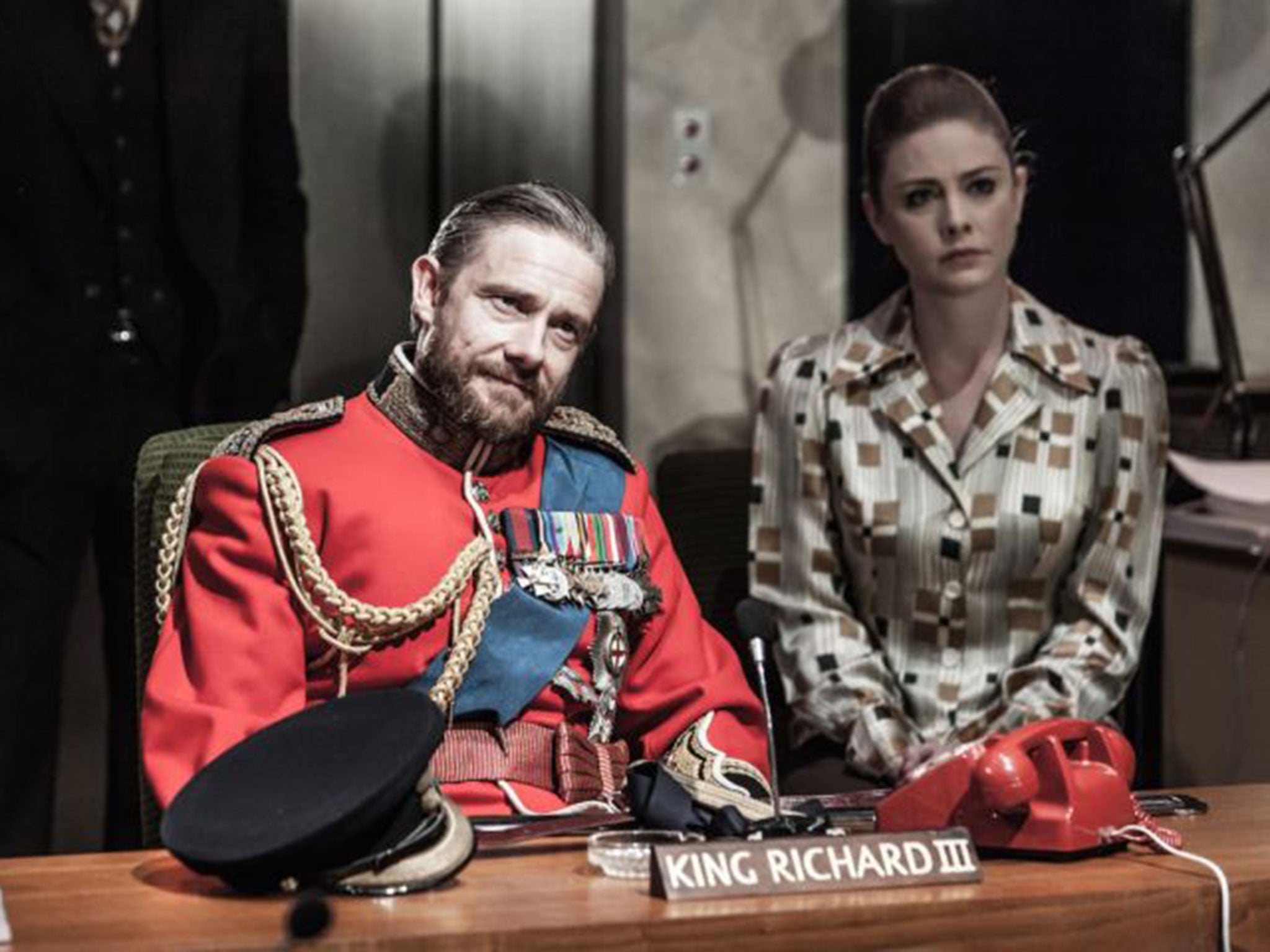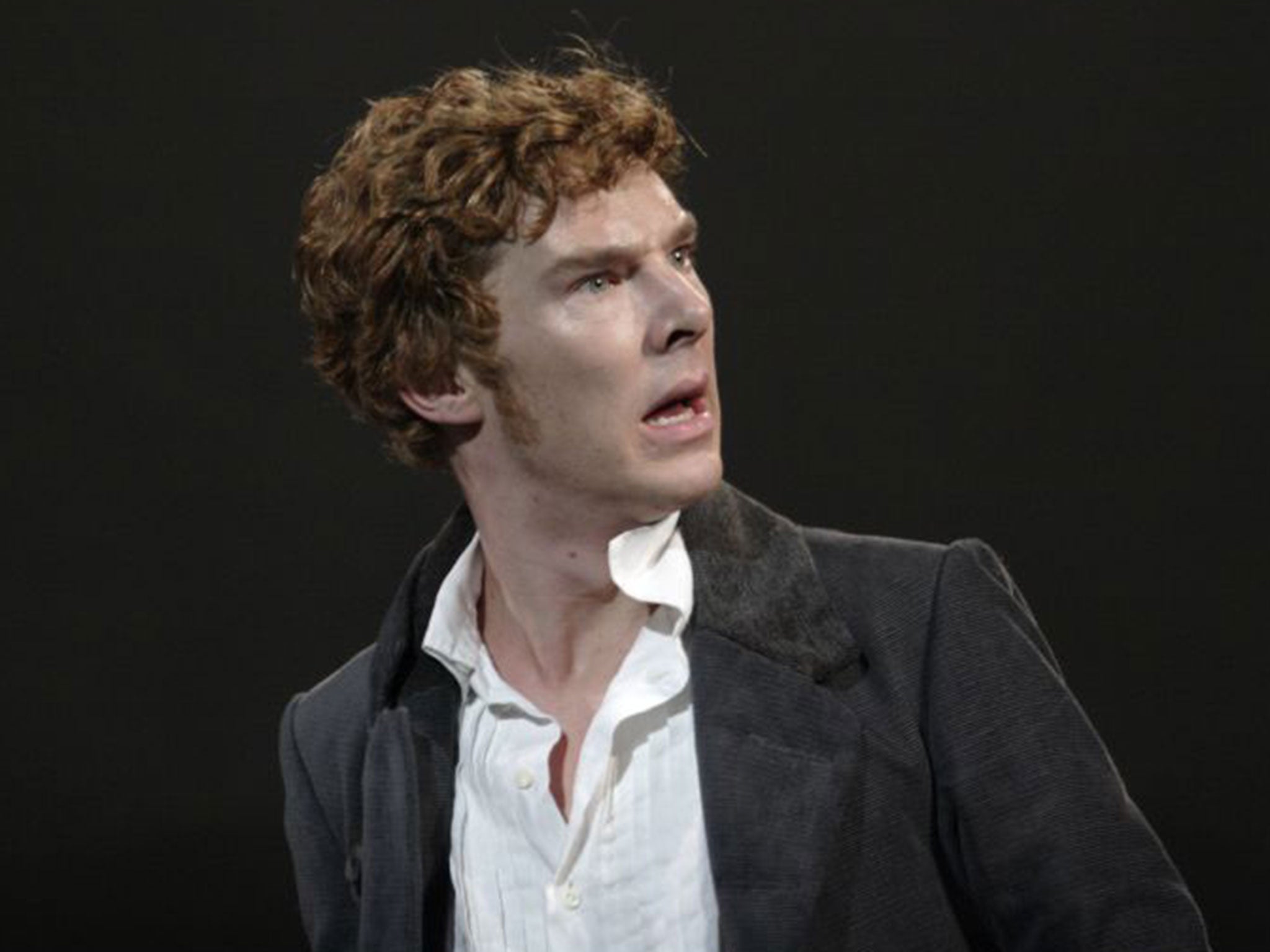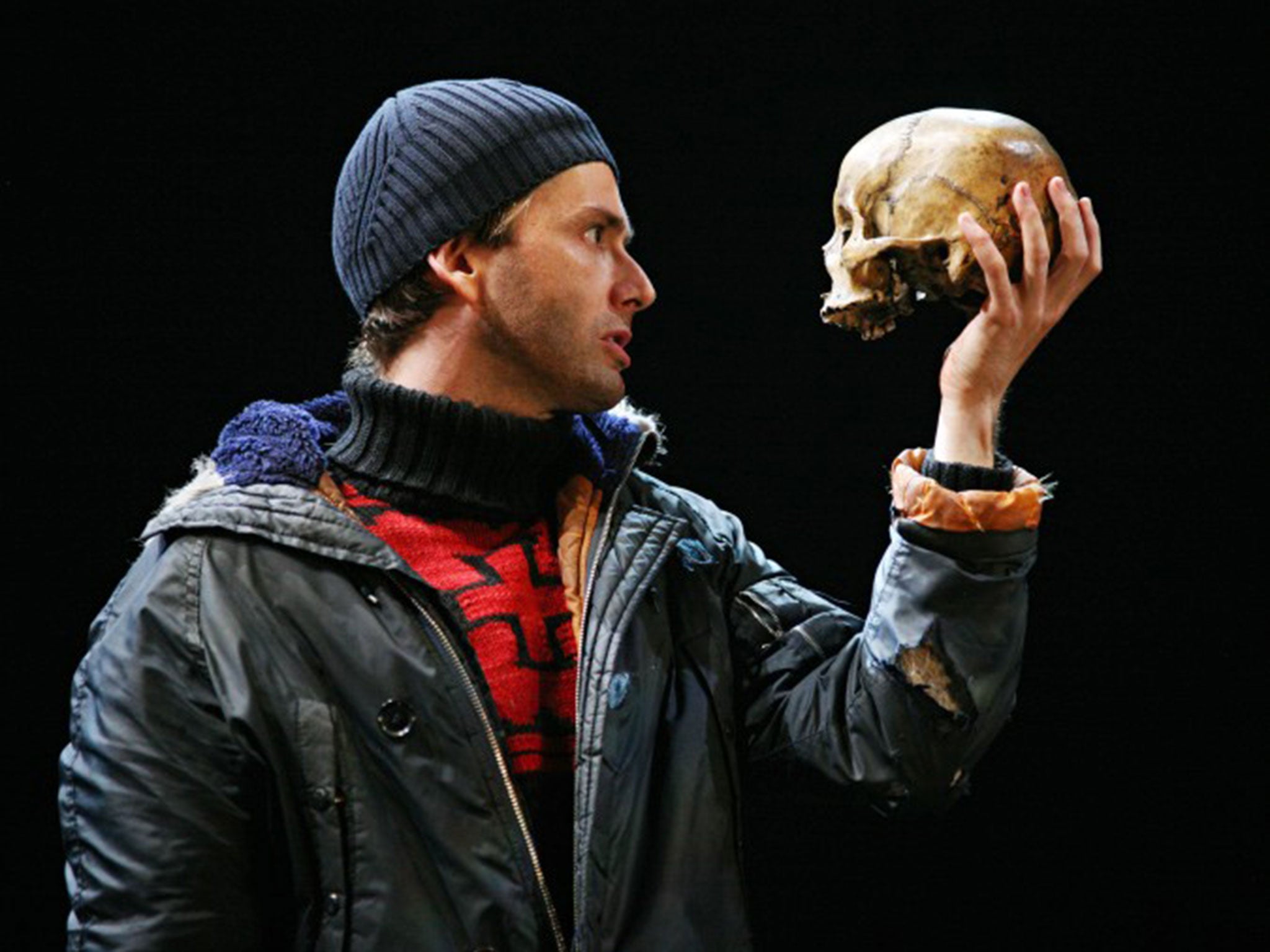Martin Freeman, Richard III, and theatre etiquette
Martin Freeman’s Richard III is attracting a new - and rowdier - audience, theatregoers complain. Don’t shush them, says Natalie Haynes, this is how theatre should be

Hell, as Sartre pointed out after a particularly trying evening at the theatre, is other people. Audiences are truly the bane of live performance. They talk through the Entr’acte, display a mysterious deafness for announcements about turning off their phones, and issue tubercular coughs that would have had Florence Nightingale bellowing, “For Christ’s sake, keep it down.”
And, just when you thought things couldn’t get any worse, enthusiastic young people have been buying tickets to see Martin Freeman in Richard III. Not only that, but when he first appears onstage, they have been cheering. Cheering, I tell you. As though they were having actual fun in a theatre, instead of sitting in reverent silence, mouthing along to “Now is the winter of our discontent”.

I do understand that the rules of theatre etiquette are there for a reason. It is intensely irritating to watch an actor lose concentration because someone’s phone starts ringing midway through the first act. But teenagers aren’t the only culprits: the most phone calls I ever heard in one show (five) was at a press night at the Royal Court. The perps were all old enough to know better, and several of them were being paid to attend. At Bring Up The Bodies, a couple of weeks ago, I was sitting a couple of rows behind a man in his late thirties, who couldn’t stop texting. Anne Boleyn swiftly became the second-most likely person to lose a head that night.
But theatre is unlikely to thrive and survive in an atmosphere of stuffy disapproval. And being a fan of an actor isn’t rude, like using a phone is. Of course it’s distracting when an audience breaks out into spontaneous applause at the appearance of a star, as though it were the opening scene of a cheesy sitcom (although the good thing about Richard III is that, once he’s onstage, he pretty much stays there). But star-casting is part of what keeps theatres in business. Trafalgar Studios is a small enterprise that consistently puts on interesting work, and Freeman’s fans (many of them young viewers of Sherlock) are contributing to its upkeep.
Since the criticism seems to be that they don’t know how to behave at the theatre, wouldn’t it be reasonable to assume that it’s their first time, and try to make them feel welcome, instead of sniffily showing them they’re not? Last time I saw The Woman in Black, the auditorium was packed with teenagers who were doing it as a set text. They screamed at every scary moment, and issued proclamations of dread at every interlude. It wasn’t what I was expecting when I bought my ticket, but it was hard to shake a jubilant feeling that a whole generation of theatregoers was being created.

The idea that the theatre should be a place of reverence is a recent one: groundlings at the Globe were unlikely to be watching Shakespeare in silence. Indeed, go to the Globe now and, even if the audience behaves beautifully, the actors will still be competing against planes, sirens and – last time I was there – a vengeful seagull. From its very beginnings, theatre has fought against distraction: Aeschylus’s Oresteia, for example, was first performed at the Dionysia, a festival in ancient Athens. In addition to being a theatre fan, Dionysus was the god of wine, so audiences were unlikely to be sober.
Fans of Martin Freeman, Benedict Cumberbatch, David Tennant and Daniel Radcliffe are just as entitled to see their heroes in a play as regular theatregoers, and their money is subsidising less commercial plays that otherwise might not get put on at all. If you don’t want to hear teenage girls screaming at Martin Freeman, then wait for a different production of Richard III. But if we don’t welcome a new generation into the audience (who will doubtless learn theatre etiquette over time, like everyone else), we’ll only have ourselves to blame when the auditorium is silent because it’s empty.
Join our commenting forum
Join thought-provoking conversations, follow other Independent readers and see their replies
Comments